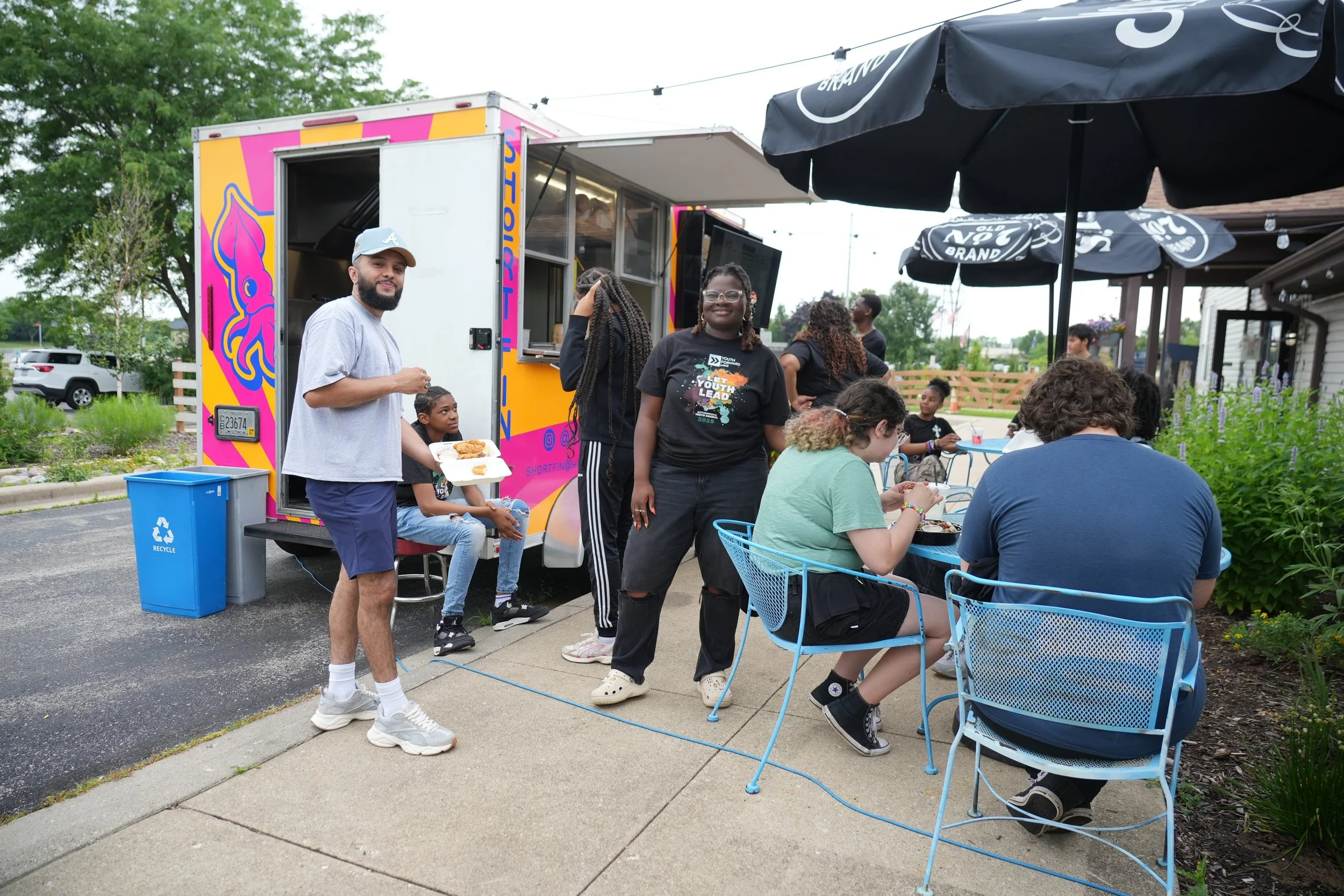Partner Placement: Milwaukee Succeeds
What’s your name, organization and role? And how many council members do you host?
We are Maria Hamidu, Youth Forward MKE program manager, and Sebastian Fuentes, community engagement manager, from Milwaukee Succeeds. We currently host five Autonomous Youth Council (AYC) members, who serve as lead project coordinators for initiatives like our Youth-Led Grantmaking Pilot and Post-Secondary Pathways Project, as well as event managers and planners for our AYC Summer Academy, workshops and our Winter Jam.
What have you learned from working alongside youth in decision-making spaces?
Working alongside youth has shown us that youth leadership can bring bold, creative and innovative solutions to challenges. When youth are part of the decision-making process from the start, the work becomes more grounded and relevant. They force us to think beyond traditional systems and make decisions that are truly responsive to the community’s needs, bringing clarity to what actually matters. They remind us that progress happens when we slow down and listen, not when we rush to solutions.
Youth will take the reins when they are given space, support and confidence to lead projects, and they are much more capable than we give them credit for.
Can you share an example of how a young person’s perspective shaped or influenced your team’s work?
During our work on post-secondary pathways, youth challenged us to think beyond traditional college routes and focus on trades, creative fields and service programs. Their input shifted how we framed the entire project, from talking about “options” to talking about “choice and access.” They’ve also helped shape our approach to working with community organizations in non-traditional post-secondary sectors. They encourage us to center youth and their development in the work.
How has this placement challenged or expanded your understanding of youth leadership?
This placement has reminded us that youth leadership is about creating the conditions for them to lead now, ultimately preparing them to be the future leaders of the city. Seeing youth navigate complex discussions with empathy and insight has expanded our view of what shared power truly looks like in practice.
The placements have also shown us that leadership doesn’t always mean being the loudest in the room. Youth lead through their lived experience, their honesty and their willingness to ask hard questions. Our role has become more about creating the right conditions for that leadership to thrive - by making space for youth voices and encouraging adults to value their experiences, respond to their questions, and engage with honesty and respect.
What strengths or insights have you noticed youth bringing to the table?
Youth bring authenticity, lived experience, creativity, courage and innovative thinking. They name truths that adults sometimes avoid and see possibilities that systems overlook. Their insights push us to be bolder and more intentional in how we design programs and make decisions. When given the space, they push conversations toward solutions that are both compassionate and actionable.
They also challenge us to reflect on what’s considered the “norm,” question why it holds that status and explore what changes we can make in partnership with youth. The more we learn from the newer generation, the more innovative and responsive we become. They teach us to be ever evolving and not stagnant.

